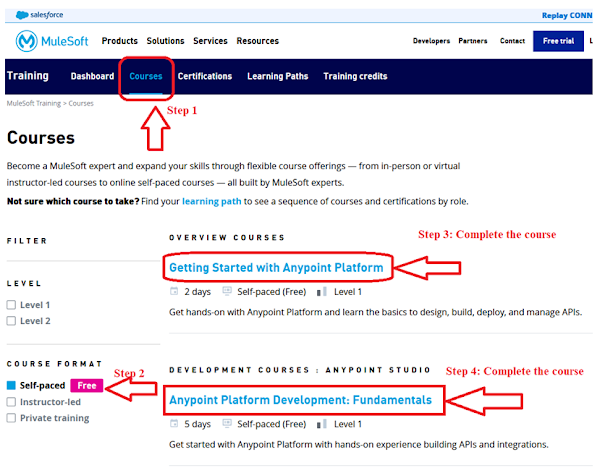MCPA Level-1
Senior solution and enterprise architects who have experience with common integration approaches (like SOA) and integration technologies/platforms, and have basic knowledge and experience with the components of Anypoint Platform
Prior architecture knowledge and experience:
- A clear understanding of the concepts and steps involved in developing software for the JVM (usually from developing in some JVM-based programming language)
- Recent experience as an architect for a cloud platform software development initiative using any technology stack
- A full understanding of the fundamental ingredients of enterprise integration including interface definitions and contracts; data encoding using XML or JSON; REST APIs or SOAP web services; SQL or NoSQL database access; message-passing using JMS, AMQP or similar; network protocols like TCP/IP, HTTP and HTTPS; single-resource transactions
- Familiarity with the purpose of common components of enterprise and cloud technology architectures including identity providers, load-balancers, and name servers
- Familiarity with basic security concepts including certificates and encryption at rest and in transit
Complete MuleSoft Instructor-led Training (Paid Course)-
https://training.mulesoft.com/course/architecture-application-networks

















